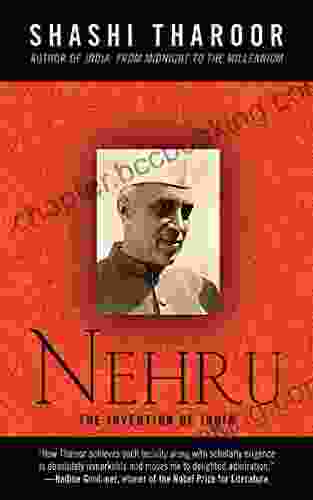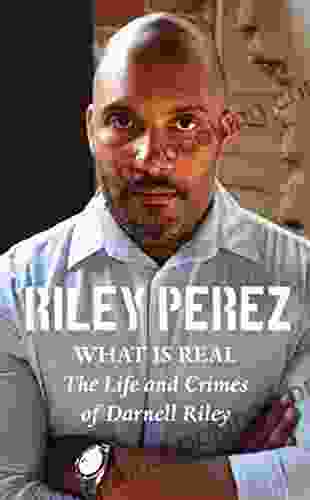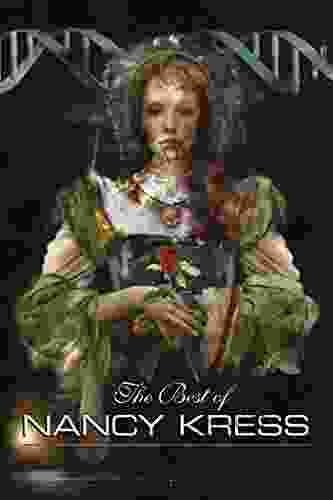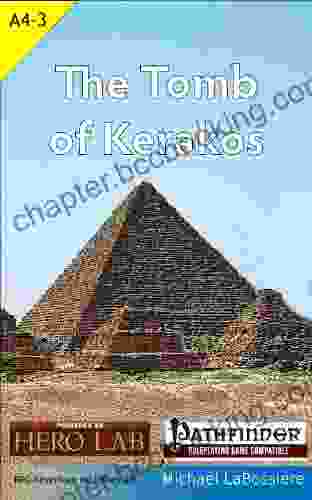Nehru: The Invention of India

By Shashi Tharoor
4.5 out of 5
| Language | : | English |
| File size | : | 2529 KB |
| Text-to-Speech | : | Enabled |
| Screen Reader | : | Supported |
| Enhanced typesetting | : | Enabled |
| Word Wise | : | Enabled |
| Print length | : | 316 pages |
| Lending | : | Enabled |
Jawaharlal Nehru, India's first prime minister, is one of the most important figures in the country's history. He was a key figure in the Indian independence movement and played a major role in shaping the new nation after independence. Nehru is also known for his writings, which have influenced generations of Indians.
In his book Nehru: The Invention of India, Shashi Tharoor offers a comprehensive and insightful look at Nehru's life and legacy. Tharoor argues that Nehru was a visionary leader who played a key role in shaping modern India. He also discusses the many challenges that Nehru faced, both during the independence movement and after independence.
Nehru: The Invention of India is a must-read for anyone interested in Indian history or politics. It is a well-written and informative book that provides a unique perspective on one of the most important figures in Indian history.
Nehru's Early Life and Education
Jawaharlal Nehru was born on November 14, 1889, in Allahabad, India. He was the son of Motilal Nehru, a wealthy lawyer, and Swarup Rani Nehru. Nehru's family was politically active, and he was exposed to politics from a young age. Nehru's father and mother were against the caste system and were very open to promoting the upliftment of people from lower castes.
Nehru received his early education at home. In 1905, he was sent to England to study at Harrow School. After graduating from Harrow, Nehru attended Trinity College, Cambridge. He studied natural sciences at Cambridge and graduated with honors in 1910.
Nehru's Involvement in the Indian Independence Movement
After graduating from Cambridge, Nehru returned to India. He quickly became involved in the Indian independence movement. In 1912, he joined the Indian National Congress. The Indian National Congress was a political party that was dedicated to achieving independence from British rule.
Nehru quickly rose through the ranks of the Congress. In 1929, he was elected president of the Congress. He served as president of the Congress for two terms, from 1929 to 1931 and from 1936 to 1937.
During his time as president of the Congress, Nehru played a key role in the Indian independence movement. He led the Congress in a number of protests and demonstrations against British rule. He also helped to organize the Indian National Army, which fought against the British during World War II. Nehru and a group of young leaders in the Congress sought to transform the Congress from an organization of the elite to one that spoke to the concerns of the entire country. They travelled across the country organizing meetings with farmers, industrial workers etc, reviving the basic Congress organisations in every district and bringing peasants and workers directly in the freedom struggle. The Congress became a mass movement and now spoke for the whole nation. He was arrested several times by the British authorities. However, he continued to be a leading figure in the independence movement.
Nehru's Role in the Independent India
India finally achieved independence from British rule in 1947. Nehru became the first prime minister of independent India. He served as prime minister for 17 years, from 1947 to 1964.
During his time as prime minister, Nehru played a key role in shaping the new nation. He helped to establish India's democratic system of government and its secular constitution. Nehru also worked to promote economic development and social justice in India. He launched a number of important programs, including the Five-Year Plans, which were designed to improve the Indian economy. Nehru was a strong advocate of non-alignment and played a key role in the Non-Aligned Movement.
While Nehru was the dominant figure in Indian politics, the Congress party under his leadership had among its ranks many outstanding leaders like Sardar Vallabhbhai Patel, Maulana Abul Kalam Azad, Dr. Rajendra Prasad, all of whom contributed greatly to the founding and building of the Indian republic. But, Nehru was the acknowledged leader and the principal architect of the Indian constitution - the basic framework within which India has conducted its democratic politics ever since.
Nehru was a prolific writer and speaker. He wrote a number of books and articles on a variety of topics, including politics, history, and culture. Nehru's writings have influenced generations of Indians.
Nehru's Legacy
Nehru died in 1964. He is considered one of the most important figures in Indian history. He was a key figure in the Indian independence movement and played a major role in shaping the new nation after independence. Nehru's legacy is complex and controversial. He is praised for his vision and his commitment to democracy and social justice. However, he is also criticized for his authoritarian tendencies and his handling of some key issues, such as the Kashmir dispute.
Despite the controversy, there is no doubt that Nehru was a major figure in Indian history. He was a visionary leader who played a key role in shaping modern India. His legacy continues to inspire Indians today.
Nehru: The Invention of India is a well-written and informative book that provides a unique perspective on one of the most important figures in Indian history. Tharoor's book is a must-read for anyone interested in Indian history or politics.
4.5 out of 5
| Language | : | English |
| File size | : | 2529 KB |
| Text-to-Speech | : | Enabled |
| Screen Reader | : | Supported |
| Enhanced typesetting | : | Enabled |
| Word Wise | : | Enabled |
| Print length | : | 316 pages |
| Lending | : | Enabled |
Do you want to contribute by writing guest posts on this blog?
Please contact us and send us a resume of previous articles that you have written.
 Book
Book Novel
Novel Page
Page Chapter
Chapter Text
Text Story
Story Genre
Genre Reader
Reader Library
Library Paperback
Paperback E-book
E-book Magazine
Magazine Newspaper
Newspaper Paragraph
Paragraph Sentence
Sentence Bookmark
Bookmark Shelf
Shelf Glossary
Glossary Bibliography
Bibliography Foreword
Foreword Preface
Preface Synopsis
Synopsis Annotation
Annotation Footnote
Footnote Manuscript
Manuscript Scroll
Scroll Codex
Codex Tome
Tome Bestseller
Bestseller Classics
Classics Library card
Library card Narrative
Narrative Biography
Biography Autobiography
Autobiography Memoir
Memoir Reference
Reference Encyclopedia
Encyclopedia Rick Portier
Rick Portier Sundari Venkatraman Kid Lit
Sundari Venkatraman Kid Lit Mia Black
Mia Black Simson L Garfinkel
Simson L Garfinkel Monica Byrne
Monica Byrne Vivek Kaul
Vivek Kaul Ramy Vance
Ramy Vance Tim Robinson
Tim Robinson Golden Lion Publications
Golden Lion Publications Rob Mccue
Rob Mccue Reid Blackman
Reid Blackman Michael Jan Friedman
Michael Jan Friedman Terrance Lee
Terrance Lee Nick Cole
Nick Cole Patrick Mccray
Patrick Mccray Suzette Riddick
Suzette Riddick Nancy K O Leary
Nancy K O Leary Muniya S Khanna
Muniya S Khanna Michael Bliss
Michael Bliss Samuel Hearne
Samuel Hearne
Light bulbAdvertise smarter! Our strategic ad space ensures maximum exposure. Reserve your spot today!
 Caleb CarterFollow ·13.9k
Caleb CarterFollow ·13.9k Yasushi InoueFollow ·16.1k
Yasushi InoueFollow ·16.1k Jim CoxFollow ·6.8k
Jim CoxFollow ·6.8k Ezekiel CoxFollow ·15.5k
Ezekiel CoxFollow ·15.5k Travis FosterFollow ·10.2k
Travis FosterFollow ·10.2k Joseph FosterFollow ·8.3k
Joseph FosterFollow ·8.3k Guillermo BlairFollow ·7k
Guillermo BlairFollow ·7k Louis HayesFollow ·19.3k
Louis HayesFollow ·19.3k
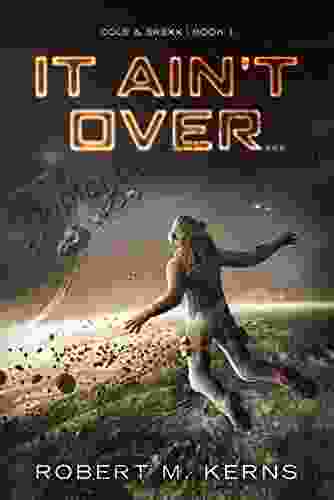
 Trevor Bell
Trevor BellUncover the Thrilling Mystery in "It Ain't Over, Cole...
Prepare yourself...

 Garrett Bell
Garrett BellHow to Stay True to Yourself and Stand Out From the Crowd
In a world that...
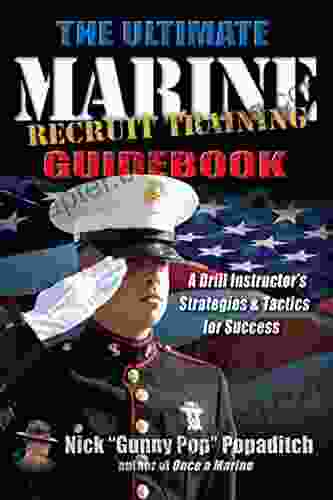
 Dennis Hayes
Dennis HayesDrill Instructor Strategies And Tactics For Success
Unleash Your Inner Warrior and Conquer...

 Guy Powell
Guy Powell101 Awesome Women Who Changed Our World: A Celebration of...
Throughout history,...
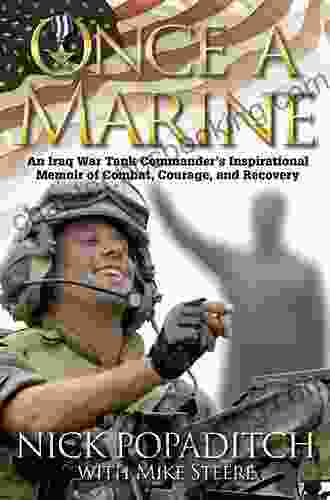
 Ashton Reed
Ashton ReedAn Iraq War Tank Commander's Inspirational Memoir of...
When he was just 19 years old, John Q....

 Dean Cox
Dean CoxLady Trader in the Transvaal: A Literary Safari through a...
Prologue: A Journey into the...
4.5 out of 5
| Language | : | English |
| File size | : | 2529 KB |
| Text-to-Speech | : | Enabled |
| Screen Reader | : | Supported |
| Enhanced typesetting | : | Enabled |
| Word Wise | : | Enabled |
| Print length | : | 316 pages |
| Lending | : | Enabled |


